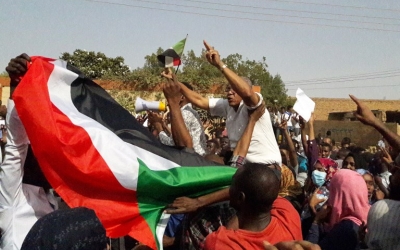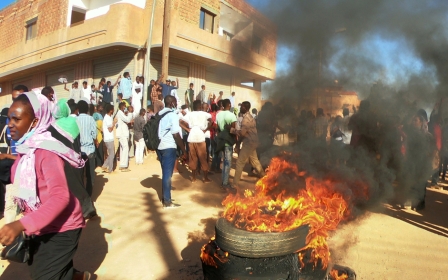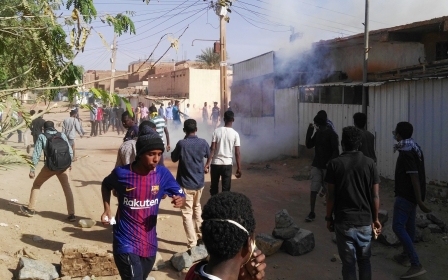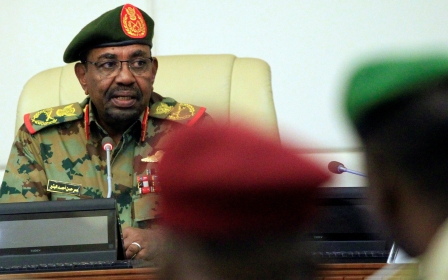Sudan's President Bashir hands party leadership to new deputy Ahmed Harun
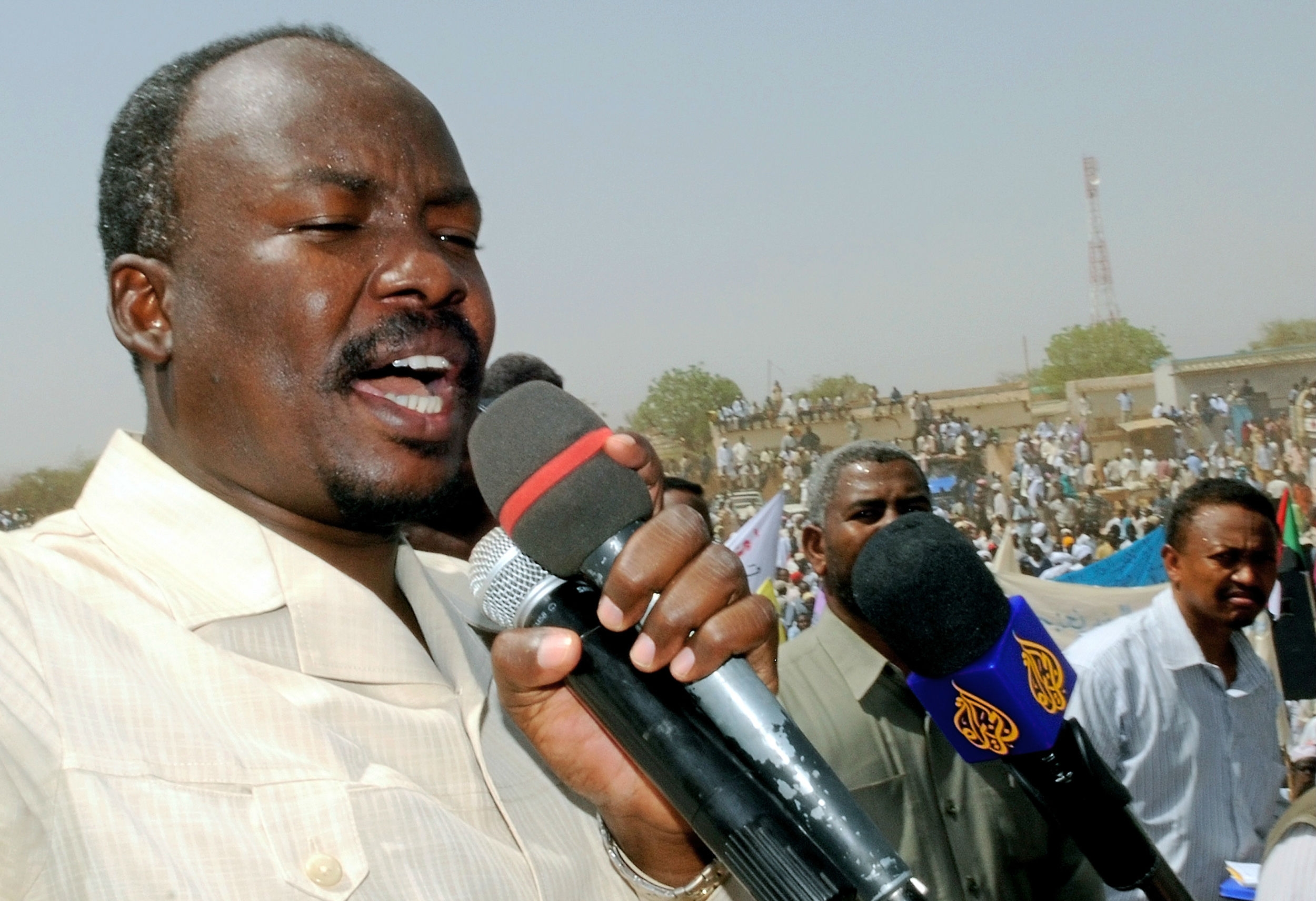
Sudan President Omar al-Bashir has handed leadership of the country's ruling party to his newly appointed deputy, the party said late on Thursday, several weeks into protests against Bashir's rule.
Demonstrations and deadly clashes have rocked the government since December, and last week the president imposed a year-long state of emergency in a bid to quell the protests.
"President Omar al-Bashir has transferred his authority as chief of the party to Ahmed Harun," the ruling National Congress Party (NCP) said in a statement.
"Harun will serve as the acting chief of NCP until the party's next general convention, where a new president of the party will be elected."
The NCP has an overwhelming majority in parliament, and according to its charter, the chief of the party becomes its candidate in presidential elections.
Stay informed with MEE's newsletters
Sign up to get the latest alerts, insights and analysis, starting with Turkey Unpacked
The next presidential election in Sudan is scheduled in 2020.
Bashir appointed Harun, who is wanted by the Hague-based International Criminal Court (ICC) for alleged war crimes in the conflict in Darfur, as his deputy party chief last week as part of top level changes in his administration in the face of ongoing protests.
Bashir himself is wanted by the ICC for alleged genocide and war crimes in Darfur, charges he denies.
Year-long state of emergency
The NCP was formed a few years after Bashir swept to power in an Islamist-backed coup in 1989, with him as party chief ever since.
But protestors have staged regular demonstrations across Sudan since December, accusing the administration of corruption and mismanaging the economy, and calling on Bashir to step down.
The president declared a year-long state of emergency across the country last week after an initial crackdown failed to suppress the protests.
Bashir also dissolved the federal and provincial governments, appointing 16 army officers, and two from the feared National Intelligence and Security Service, as governors of the country's 18 provinces.
Bashir also ordered the creation of special emergency courts to investigate violations during the state of emergency.
Security forces can now search any building, restrict movement of people and public transport, arrest individuals suspected of a crime related to the state of emergency and seize assets or property during investigations.
First use of emergency courts
There was a noticeable increase in the spread of protests across Khartoum and Omdurman on Thursday.
Demonstrators were apparently galvanised by a call from the Sudanese Professionals' Association, which has emerged as the main protest organiser, to challenge the emergency courts' establishment.
Hundreds of anti-government protesters gathered on Thursday in the twin cities, where police fired tear gas to quell the rallies.
Eight protesters were sentenced to jail by emergency courts in Khartoum for participating in the rallies, the first such punishments handed down since the courts were established, the AFP news agency reported.
Officials say 31 people have died in protest-related violence so far, while Human Rights Watch says at least 51 people have been killed.
Protests first erupted against a government decision to triple the price of bread, but swiftly escalated into demonstrations against Bashir's rule.
Middle East Eye delivers independent and unrivalled coverage and analysis of the Middle East, North Africa and beyond. To learn more about republishing this content and the associated fees, please fill out this form. More about MEE can be found here.


